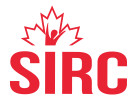Ethics policy
The purpose of the Ethics Policy is to guide editors, evaluators/reviewers and authors regarding the ethical assumptions that underpin the editorial work at Pensar a Prática Journal. The principles and guidelines listed below were drawn up in reference to the Academic Integrity Guide of the Federal University of Goiás (UFG) and subscribe to the recommendations and procedures for ensuring good research practices and scientific publication issued by the Committee on Publication Ethics (COPE).
Pensar a Prática is committed to:
- Ensure the integrity of all stages of the editorial process (submission, evaluation, editing and publication);
- Publish original and unpublished scientific contributions;
- Publish contributions in which the ethical criteria of scientific research have been respected, in accordance with the terms of Resolutions n. 466/2012 and no. 510/2016 of the National Health Council - Brazil;
- Require the approval of the Research Ethics Committee, when the research involves data collection with human beings;
- Analyze and investigate any suspicion or complaint of scientific misconduct involving the editorial process;
- Inform and clarify those involved about the process of analysis and investigation of suspected or denounced scientific misconduct, ensuring those involved the right to adversarial proceedings and full defense;
- Publish corrections, revisions, retractions and notes of concern of published articles;
- Apply sanctions to those involved in proven cases of scientific misconduct, such as removal from functions and attributions in the case of editor(s) and/or reviewer(s), archiving submissions in progress and suspension of new submissions in the case of author(s).
The Editor in Chief and Associate Editors are committed to:
- Ensure the ethical integrity of the editorial process;
- Monitor and guide the actors involved in the editorial process, in order to promote good scientific practices and prevent scientific misconduct;
- Lead the analysis and investigation of any suspected or reported scientific misconduct involving the editorial process;
- Ensure that submissions not approved in the first stage of the merit assessment are quickly returned to the authors;
- Submit the manuscript approved in the first stage of merit assessment for analysis by at least two evaluators/reviewers;
- Ensure that the assessment is based on academic neutrality and impartiality;
- Ensure that the peer review respects the double-blind principles, guaranteeing the confidentiality of authors and reviewers;
- Elaborate final evaluation of the manuscript under analysis in the second stage of merit evaluation, based on the recommendations of two evaluators/reviewers and, exceptionally, only one evaluator.
Evaluators/reviewers are committed to:
- Respond quickly to the Journal's invitation to evaluate the manuscript, accepting or rejecting it;
- Decline the invitation to evaluate the manuscript, with which it identifies a conflict of interest;
- Evaluate the manuscript maintaining the complete secrecy of the content, as well as the result of the evaluation;
- Thoroughly evaluate the manuscript, which requires a detailed analysis of the title, abstract, keywords, introduction, method, results, discussion and references;
- Draw up a substantiated evaluation, presenting the arguments that justify or recommend the approval, disapproval or mandatory corrections;
- Communicate any suspicion of scientific misconduct in the manuscript under analysis to the editors.
The authors are committed to:
- Submit for evaluation only manuscripts involving original and unpublished research contributions that are not being evaluated for publication by other journals; nor published in a blog, personal page or other remote vehicle in whole or in part;
- Include a note informing whether the manuscript is derived from a thesis or dissertation;
- Include a note informing funding sources;
- Format the manuscript, prior to submission, according to guidelines for authors;
- Submit to the Journal, as a “supplementary document”, the opinion of the Ethics Committee, when the research involves data collection with human beings;
- Submit to the Journal, as a “supplementary document”, a list suggesting at least two evaluators (PhDs/Doctors) for the manuscript, with name, e-mail, contact institution. Attention, researchers who have participated in any part of the research that originated the manuscript or who currently or in the past have a relationship with the authors that could compromise the evaluation process should not be indicated. It is also forbidden to indicate evaluators belonging to the same research groups and institutions as the authors. Despite the reviewers' suggestion, the double-blind review process will be respected;
- Report to the editor (in comment to the editor) any conflicts of interest of the authors of the research;
- Delete any information from the manuscript (eg, author's name; institution; research group) that allows identification of the authors in the body of the text and in the file in which the article was recorded.
(To remove the file identification, open it in Word in the title bar File/Properties/Abstract and delete all information. This procedure guarantees the journal's secrecy criteria).


